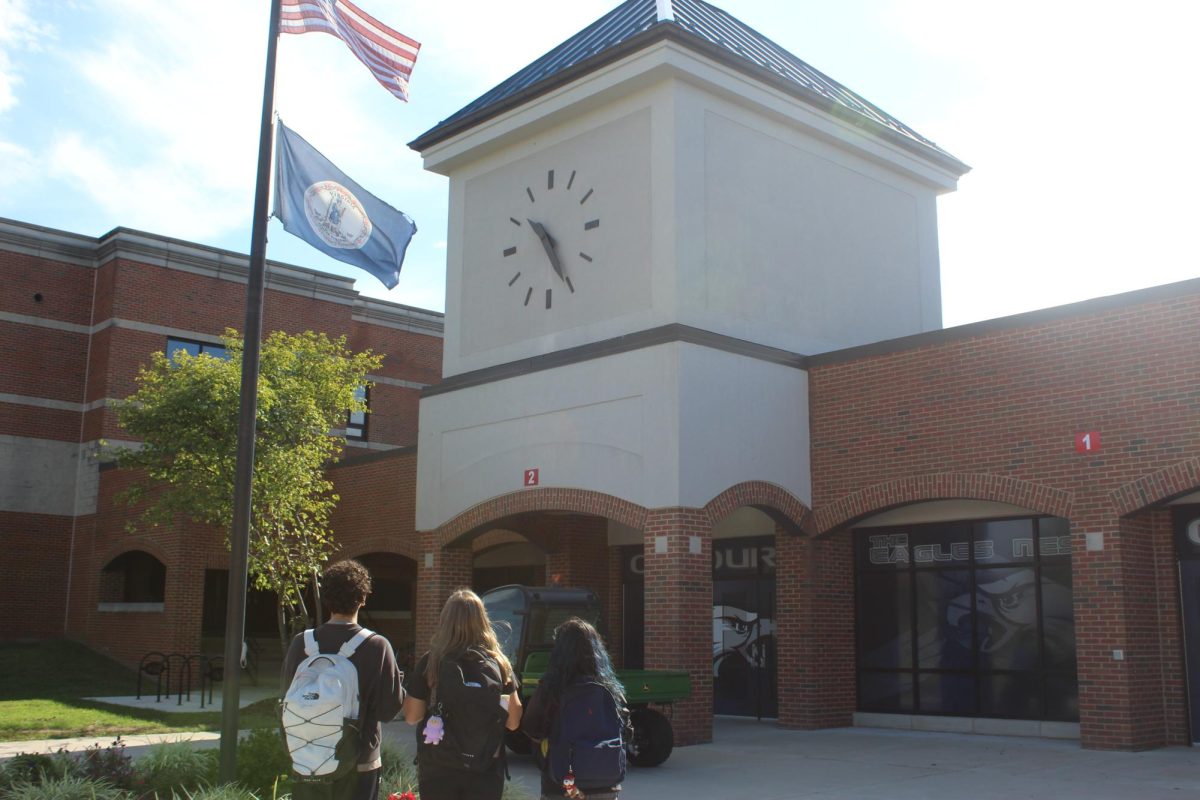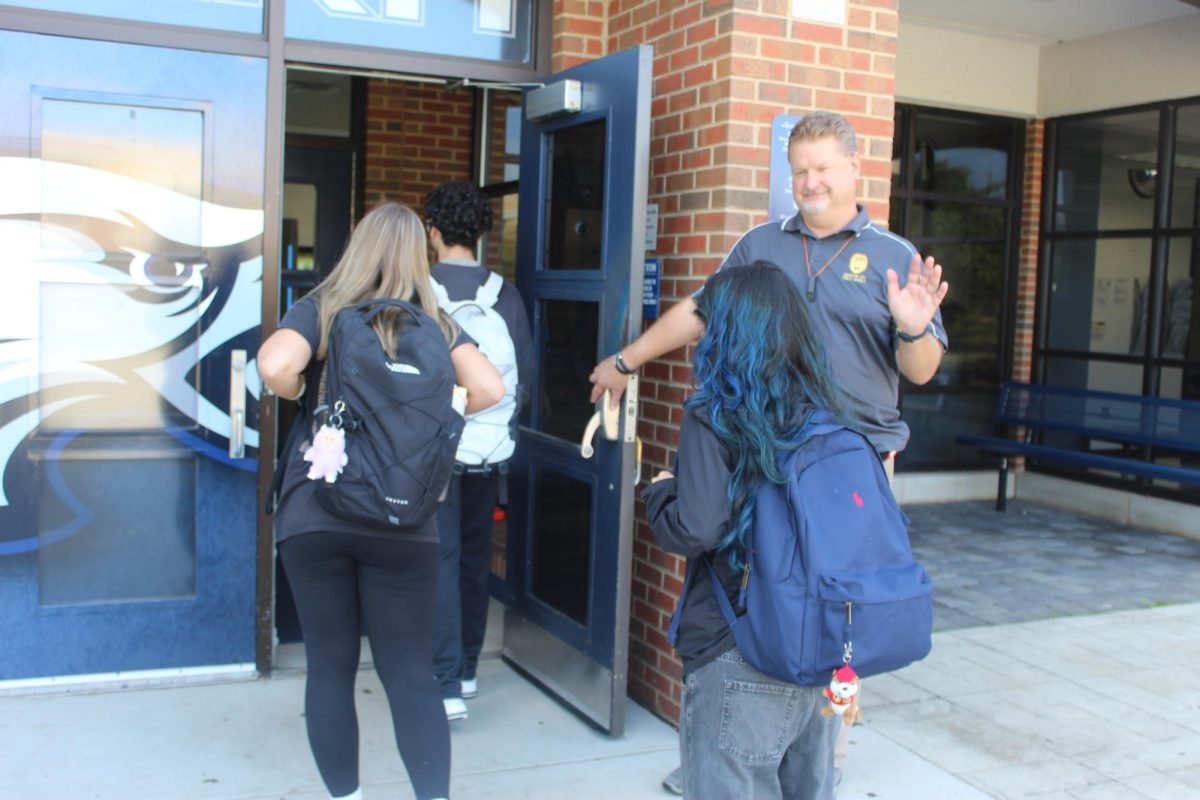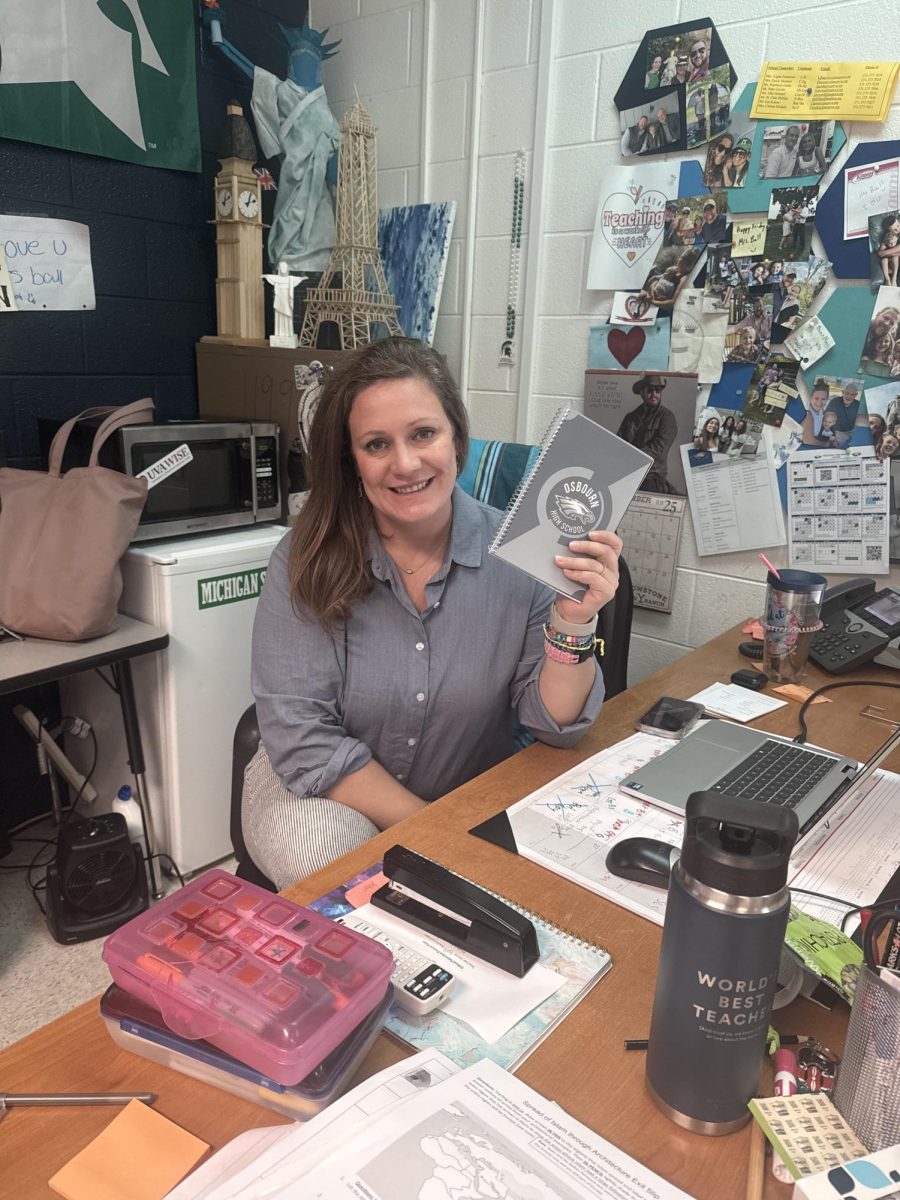For many freshmen, the first year of high school is about learning to navigate crowded hallways, keeping up with assignments, and finding their place in a new environment. But for some, that adjustment comes with an added challenge of Advanced Placement courses.
AP classes are typically taken by juniors and seniors who are preparing for college-level work, but recently, more freshmen have been enrolling. The courses are designed to be the equivalent of college classes, and students who score high enough on the national AP exam can even earn college credit. That possibility, combined with the chance to stand out on transcripts, has motivated some ninth graders to take the leap.
“I decided to take an AP class during freshman year because I want to earn some sort of credits, even if it’s just going to be high school credit,” said freshman Leslie Gomez Rivas. “I also want to prepare myself with college work and classes.”
For students like Leslie, the decision is about looking ahead to the future and not looking back, but the day-to-day reality of AP classes is often more demanding than a typical high school class. Freshman Anastasia Cernucan said the after-school work takes a reasonable amount of time each week.
“I usually spend 30 minutes to an hour working on my classwork,” Anastasia said. “I take longer when I’m studying for a test.”
That time commitment can be one of the biggest adjustments for ninth graders, who may not be used to such heavy study schedules. While some struggle with keeping track, others see it as valuable practice for what’s to come in the future.
“I think my AP class is helping me prepare for college mostly, because I will challenge myself to do something which will help me understand the logic of college,” said freshman Sama Samandiri.
Teachers also notice the difference between regular coursework and AP classes. Especially when it comes to motivation and resilience. Mr. Ball, who is an AP teacher, explained that while some thrive, others quickly realize the challenges.
“Typically, freshmen enrolled in an AP class have a lot of internal motivation and engagement in classes,” Mr. Ball said. “A lot of the motivation I support is when the students are having difficulty learning the content. Students earn lower grades than they want because this is a highly advanced course. Some students want to quit, so I try to encourage them to keep trying and adjust learning methods.”
This balance of challenge and support is part of what makes AP a unique experience for younger students. While many ninth graders are still adjusting to the expectations of high school, AP freshmen are also building study skills that may serve them later.
Freshman Paola Hernandez said she doesn’t regret the choice to take on the added work of AP. “If I could go back to eighth grade, I would still choose to take an AP class because I like to challenge myself, push myself, and also because it opens a lot of doors in your future if you pass the exam,” she said.
The benefits aren’t guaranteed; however, not all colleges accept AP credit, and the courses can add stress to an already transitional year. Still, for many freshmen, the decision to start early is less about the exam score and more about learning how to manage a heavier academic load.
Leslie said she sees her AP class as a way to build confidence for the future, even if it doesn’t translate directly to college credit. Anastasia, on the other hand, said that time management is one of the hardest parts of the course. Both agreed that the experience is pushing them to grow.
Mr. Ball believes that’s the most important outcome of all. “Even when they struggle, freshmen in AP are showing they want to learn at a higher level,” he said. “The effort they put in now will carry them forward later.”
As more ninth graders choose to take AP classes, the trend raises important questions like, How young is too young for college-level work? Can freshmen balance the pressure without burning out? While answers might vary. One thing is clear for students like Leslie, Anastasia, Sama, and Paola: the experience of AP as a freshman is already shaping the way they think about their future.
Taking their first AP class feels like a big step. It’s not just about harder homework or earning college credit later. It’s also about feeling confident and showing themselves they can handle a challenge. They’re ready to push themselves, build confidence, and prove they can keep up with hard work. Some hope to build better study habits, get ready for harder classes in the future, and learn as they go.
Freshmen say they joined AP classes because they want more than just a good grade. Some hope to gain skills that will help them in high school and later on in college. Some want to challenge themselves, and others are more interested to learn more about the subject they like.
Freshman Marlon Maradiaga said, “ I hope to gain stronger study habits and learn how to manage my time better when I’m facing hard assignments. I also want to build confidence in my ability to solve problems on my own, while still knowing when to ask for help from Mr. Ball or my classmates. In general, I want this experience to prepare me for future challenges in school.”
Being in an AP class can feel very different from a regular class. The lessons move faster, the homework takes more time, and teachers expect students to stay on top of their work. Sometimes it can feel stressful, but many freshmen say it also feels exciting because they get to learn more and push themselves to do better.
“Challenging but simple if enough effort is put into it. I say challenging due to the fact that the class/ teacher will push you to do your best, but also not to rely on others for most things, find things on your own, “ said freshman Giselle Escobar.
Adriana Rich said, “ My strengths are my ability to keep my notes organized and my writing skills.”
Freshmen also shared some strategies they use when AP work gets hard. They said they study in smaller sections instead of all at once. Others make flashcards, ask teachers for help, or study with friends. These strategies help them stay on track when facing a hard test or assignment.
Freshman Kendal Metz shared some strategies she uses when she has a hard assignment/ test. “When I have a hard test or assignment, I usually break it into smaller parts so it doesn’t feel overwhelming. I also review my notes, make a quick study guide, and if I’m stuck, I’ll ask Mr.Ball or a classmate for help.”
People have their own definition of success, especially in hard classes like an AP class. For some people, it might mean getting a good grade on a test or major assignment, while for others it’s about growing their understanding in their class or pushing themselves.
Marlon Maradiaga said, “My definition of success in this class is doing my best, understanding the lessons, and not giving up even when the work is hard. Success also means learning from my mistakes and improving as I go.”














Engel Diaz Diaz • Oct 9, 2025 at 2:34 pm
Its nice to see how the freshmen’s feel so far about these advanced classes since middle schools don’t have as much advanced classes as Osbourn does, I hope they have a good rest of their year!!
Engel Diaz Diaz • Oct 9, 2025 at 2:33 pm
Its nice to see how the freshmen’s feel so far, I hope they have a good rest of their year!!
Henna Exley • Oct 9, 2025 at 10:43 am
This is a good article. It’s amazing to see so many freshmen challenging themselves and working hard in AP classes.
yamilet caporal dominguez • Oct 6, 2025 at 10:06 am
It’s inspiring to see freshmen pushing themselves with AP classes and learning time management so early on.
Yolanda Rosales Contreras • Oct 1, 2025 at 12:12 pm
It’s pretty cool to see the freshmen take one or more challenging classes especially how students are when it comes to picking classes and it’s cool that some push their potential.
Kiara Rosales Funes • Oct 1, 2025 at 10:08 am
I like how this article shows that taking AP classes as a freshman is about more than grades, it’s about time management, confidence, and challenge. I relate to breaking work into smaller parts or asking for help. How do freshmen balance AP work with other classes and activities?
cadence williams • Sep 29, 2025 at 12:33 pm
its good for us to have so when we need it in the real world he would know
cadence • Sep 29, 2025 at 12:25 pm
its good that we have to do it it helpes us propare for life
kayla moore • Sep 29, 2025 at 11:19 am
It’s nice to see the freshmen take on more challenging classes especially how the kids are now and days
Aileen Maltez • Sep 29, 2025 at 10:33 am
I know AP classes can be hard so it’s really cool to see that freshmen are taking these advanced classes. This was a really good article and it really showed how seriously students are taking the class!
meyli Gomez hernandez • Sep 29, 2025 at 10:01 am
It’s great to see freshmen stepping up and taking on the challenge of AP classes so early! Balancing harder work with adjusting to high school can be tough, but these students are showing real dedication and motivation. Loved hearing their study tips and how they support each other.
Bri • Sep 26, 2025 at 10:46 am
I am happy watching freshmen take higher classes, because it can be beneficial to your GPA and you also need at least one AP, Honors, or IB enrollment for graduation. I am proud of freshmen being able to challenge themselves in order to achieve higher goals.
Lesly Velasco • Sep 26, 2025 at 10:43 am
I think I would have wanted to step up on my classes to go for somethings more challenging !
paola • Sep 26, 2025 at 10:42 am
I agree with a lot of thin gs this article has to share.
Larry Lizalde • Sep 25, 2025 at 12:21 pm
It’s nice to see freshmen take more challenging classes. Especially with how the older generations think of this gen Z.